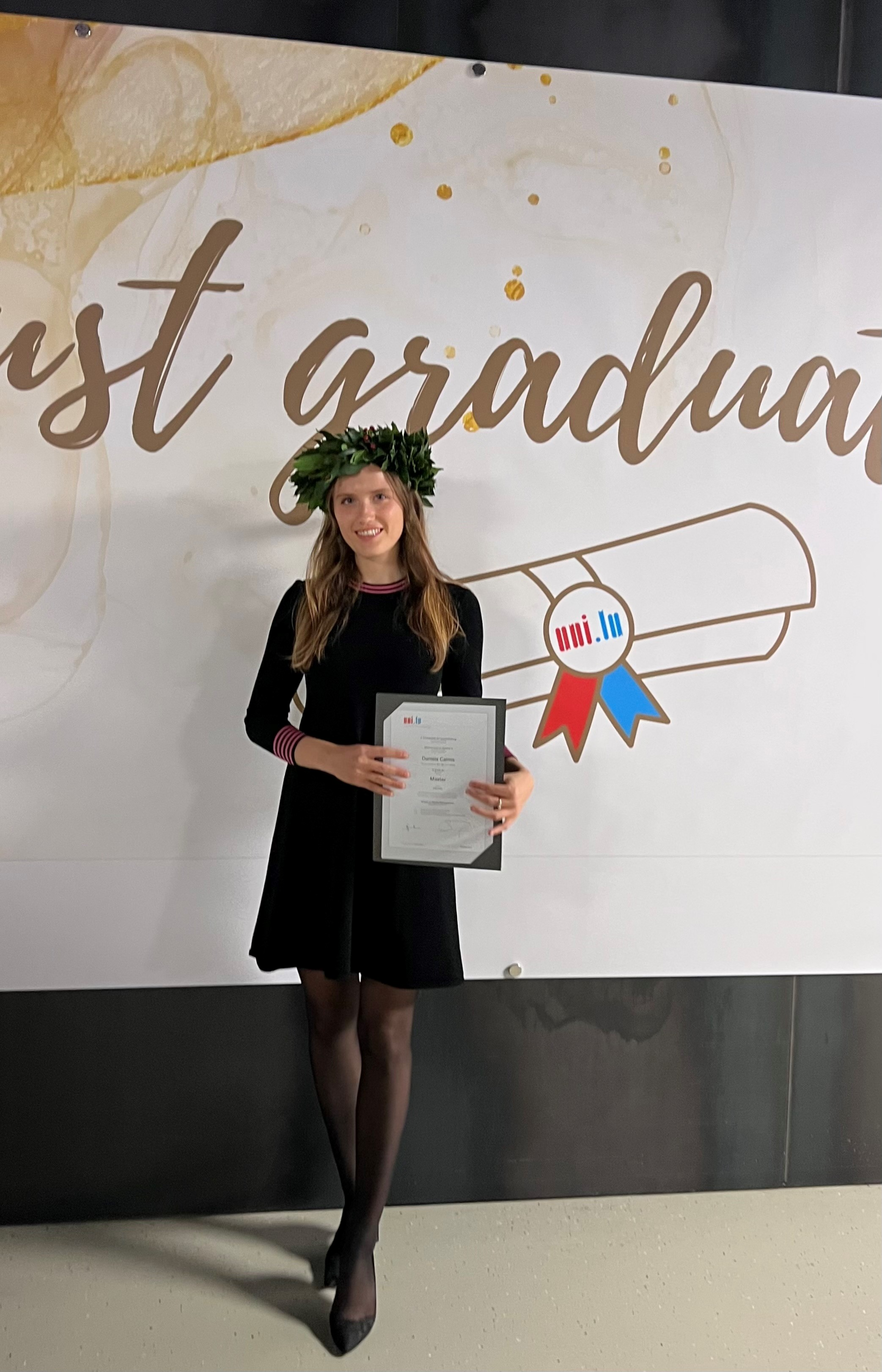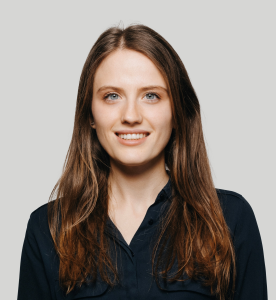Meet Daniela Calmis, our alumna of the Master in Wealth Management, and a young financial professional who has successfully built her career in Luxembourg’s wealth management sector. After completing her bachelor’s degree in Italy, Daniela decided to further her education with a Master’s in Wealth Management at the University of Luxembourg, where she began her professional journey.
Now celebrating three years at UBS, Daniela’s career took off with a mandatory internship as part of her Master’s programme. We spoke with Daniela about her educational background, career development, and the path that led her from Italy to Luxembourg’s financial sector.
Daniela, how did you start your career in wealth management?
I did my Bachelor’s degree in Milan, where I studied banking, and then pursued a Master in Wealth Management at the University of Luxembourg. I’ve now been working for three years at UBS, starting as an intern – my internship was the mandatory one we had to do during the Master’s programme.
I’m proud to have started working right away in the field I studied. That doesn’t happen often. Many people study one thing and end up working in something completely different, only later finding their way back to what they originally wanted to do. In my case, I landed an internship in wealth management immediately. I also made the most of it during my internship – if you show that you’re capable and reliable, doors open. There’s always some luck, too. My colleague was going on maternity leave a few months after I started, and the manager asked if I’d like to step in and cover for her.
Why did you decide to study wealth management?
Before university, I studied at a High School of Science in Italy, where I had a lot of scientific courses. Banking was something I discovered during my Bachelor’s degree at the university. This field has always fascinated me.
So, as I already had a banking background from my bachelor’s, I knew that I wanted to work in banking. That’s why I chose the Master’s in Wealth Management. It was the programme that I thought would prepare me best for the job I wanted. Even though Luxembourg is mostly known for the fund industry, there are still many opportunities in banking. So, I chose it because it intrigued me – and that’s how my journey began.
What did you find the most valuable or practical in this Master’s?
The practical approach of the courses. In Italy, studies focus heavily on theory, and the practical side often gets left behind. In this Master’s, the courses were much closer to what working life is actually like. Now that I’m working, I see how helpful the case studies and team projects were – they reflect real-life situations.
I sensed this already when I read about the programme on the University of Luxembourg website. That’s why I chose Wealth Management instead of the Finance Master’s – this one seemed more hands-on. Another valuable aspect was that many of our lecturers were professionals working in the industry. That made the learning experience more relevant and insightful.

How did you find out about the University of Luxembourg and this Master’s programme?
I didn’t know anything about it at first.
When I decided to move to Luxembourg, I didn’t have any contacts or friends in the country. But I knew that Luxembourg is a major financial centre, and I saw it as a place with strong career opportunities. That was one of the main reasons I left Italy. I was studying in Milan, which is a big city with many universities and students, so it’s easy to feel like just one among many. Here, the environment is smaller, but finance drives the country. That makes a big difference.
Tell us more about your job now – your responsibilities and what your typical day looks like.
The title of my job is Process and Quality Specialist.
In my role, I work at the front desk with Client Advisors, Investment Advisors, and Relationship Managers. I focus on risk-related topics. I don’t handle investment proposals or market strategies, but I manage the risk side. That includes reviewing client profiles throughout the relationship, client onboarding, special pricing renewal, etc.
One recent project involved the Credit Suisse and UBS integration. I had the opportunity to travel to Lisbon and train on risk topics the colleagues who came from Credit Suisse. That was an enriching experience. It’s not every day that one bank acquires another, so I appreciated the chance to share my knowledge and help integrate the teams. Each bank has its own way of doing things, so integration takes time and collaboration.
What does a typical day look like for you?
It varies, but I spend time in meetings with different departments. We have weekly team meetings and cross-division updates. So, communication is key, especially when there are changes or new practices. Another part of my day involves direct contact with clients, especially during structural changes.
We work with private individuals and entities: holdings, trusts, foundations and so on – so we review those relationships regularly. That client-facing aspect is what I enjoy most. We’re considered the face of the bank.
How do you continue learning and keep up with trends in wealth management?
Internally, we get updates through corporate communications. There’s a team that keeps us informed about market news and trends. But it’s up to each person to decide how much time to invest. Since I’m not directly involved in the investment side, I don’t follow the markets as closely as my colleagues. In a big corporation like UBS, everyone plays a specific role. You specialise in one area, and if you want to broaden your knowledge, that’s your own initiative. The resources are there – but it’s your responsibility to explore further.
What advice would you give to students who want to work in wealth management?
Getting your degree is just the starting point. After that, you need something that makes you stand out. When we select interns, we look for something in the CV that catches our attention.
What do you think caught the attention of the recruiter during your interview? What made you stand out?
In my case, my manager was really interested in my experience in a TV program. During high school and early university, I was part of a Swiss television program that was treating contemporary topics, trends and issues in our society. These topics were debated between a young group of adults (of the age between 18 and 25) and I was often part of these weekly episodes.
My hiring manager was really surprised and asked me few questions on how I contributed – it made me memorable. So don’t standardize yourself. Do something unusual or outside the box – it might help you stand out. Completing your studies is essential, but soft skills and unique experiences can make a big difference.
In terms of subjects or knowledge, what would help a student stand out?
The courses give solid but general knowledge, which is important. I wouldn’t say one subject is more important than another – banking requires a broad understanding. The key is being able to connect the dots. That’s what university teaches you. Outside the classroom, students can take advantage of certifications. For example, the Bloomberg certification – University of Luxembourg provided access to Bloomberg terminals and offered the certification for free. So whenever you can do something extra, just do it. You never know when it will pay off.
